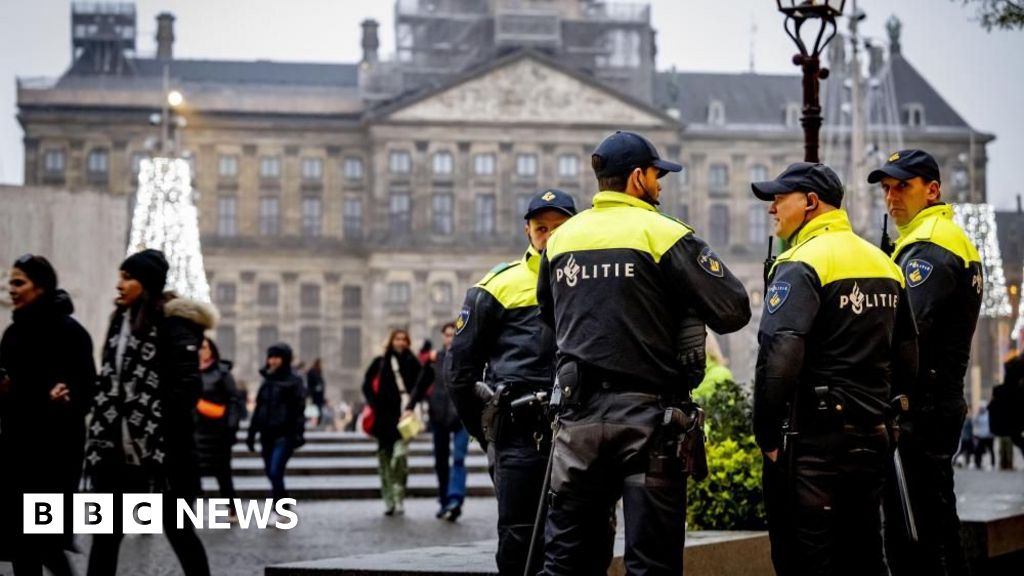Maccabi Tel Aviv fans had arrived in the city for a Europa League match against Ajax and footage was widely shared the night before showing a group of fans climbing up a wall to tear down and burn a Palestinian flag.
An Amsterdam council report said taxis were also attacked and vandalised.
Emine Uğur, a well-known columnist in the Muslim community, says underlying tensions surrounding the war in Gaza meant that the ensuing violence was “a long time coming”.
She speaks of a lack of acknowledgement of the pain felt by communities affected by a conflict that had left many without an outlet for their grief and frustration.
The flag-burning incident as well as anti-Arab chants were seen as a deliberate provocation.
But then messages calling for retaliation appeared on social media, some using chilling terms such as “Jew hunt”.
On the evening of the match, a pro-Palestinian protest was moved away from the Johan Cruyff arena, but it was in the hours afterwards that the violence erupted.
The 12-page report by Amsterdam’s authorities describes some Maccabi supporters “committing acts of vandalism” in the centre.
Then it highlights “small groups of rioters… engaged in violent hit-and-run actions targeting Israeli supporters and nightlife crowd” in locations across the city centre. They moved “on foot, by scooter, or car… committing severe assaults”.
The mayor of Amsterdam, Femke Halsema, described the incidents as deeply alarming, and noted for some they were a reminder of historical pogroms against Jews.
For a few hours, swathes of the Jewish community in a European capital felt as though they were under siege.
These events coincided with the anniversary of the Nazi pogroms on Jews in 1938, also known as Kristallnacht.
That only intensified the fears of Amsterdam’s Jewish community, although local imams and other members of the Muslim community took part in the commemorations.
Senior members, including Esther Voet, editor of the Dutch Jewish Weekly, organised emergency shelters and coordinated rescue efforts for those fearing for their lives.

